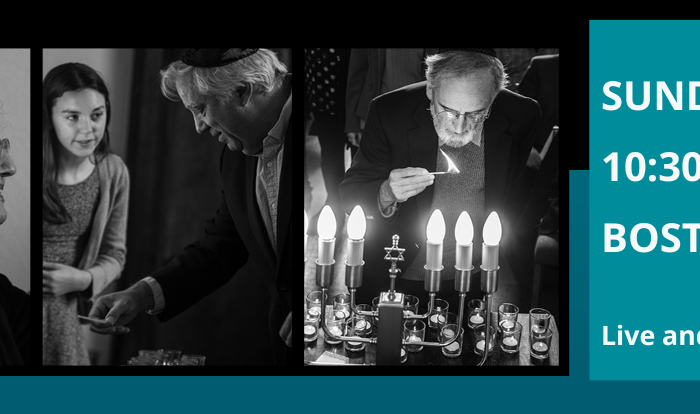This week, a message from Executive Director Jeremy Burton and Director of Synagogue Organizing Rachie Lewis:
In this unprecedented time, many of us are figuring out what work and community look like from our homes and from safe distances. At JCRC, as we stay connected to our colleagues and partners over zoom—often distracted by a coworker’s bookshelf, or child, or snack—we are constantly discerning: What work can and must we still do—what relationships can and must we maintain—from a distance? From the isolation of our homes? Without ways to physically gather as a collective?
As we apply those questions to our immigration accompaniment work, it has become evident that to stay true to our values, to sustain our essential work, we must also figure out how to remain connected to those detained in immigration jail even as we keep our physical distance.
In partnership with the Boston Immigration Justice Accompaniment Network (BIJAN), we continue to free people from immigration detention, and to show up when asked. We know that jails are already atrociously unsanitary given that those incarcerated are forced into crowded living quarters and not provided with basic hygienic products. The social distancing that we know is critical to avoid community spread of COVID19 simply is not an option for them. BIJAN has been supporting those detained to publicize the dangerous and worsening conditions that all people who are incarcerated (both in immigration and criminal jails) are facing. We cannot fully stay away, because we know that ICE cannot be relied upon to take the necessary measures to ensure adequate hygienic prevention or health care for anyone who may get infected inside the walls of detention facilities.
Our challenge is that this work has always required the opposite of hunkering down, isolating ourselves, and passively waiting. It has taken marshalling all of our resources, going everywhere we can safely go, opening doors rather than closing them, and being as proximate as possible to our friends and neighbors.
This work has always required enormous creativity, along with a constant weighing of risk and priority. That has never been truer than in this moment. In the two weeks prior to Governor Baker’s order to shut down all non-essential business and advisory to remain at home, we succeeded in bonding out 18 people, we continued to raise money for bonds and legal support, and we figured out how to be present in whatever ways we could. Bond payers arrived at emptier ICE offices, and with their own clean pens in tow and paid bonds for those detained across the country, since many other ICE offices had been closed. Generous hosts opened their homes to individuals and families once detained, and strangers quarantined together quickly become family. Court accompaniers showed up, even as judges denied them entry, and they remained in the waiting room keeping family members company.
Now that we are staying put in our homes, we will continue to find ways to be proximate. We will write letters to let people in detention know they are not alone, we will help find legal representation, and we will continue to raise money and bond out the people we can and support for those whose hearings have been postponed. We will advocate for the release of ICE detainees, because we know that as conditions worsen inside jails, as resources are spread thinner and thinner, the situation for the detained and incarcerated will become ever more dire. This work cannot stop. It will evolve and look different, it will require more resolve and creativity, but we cannot step away now.
We hope you will join us in this work.
Shabbat Shalom,
Jeremy & Rachie




